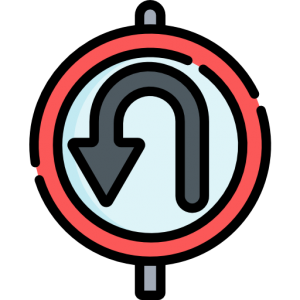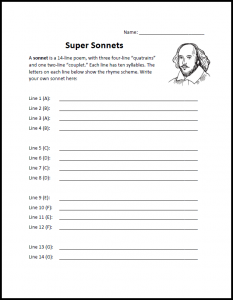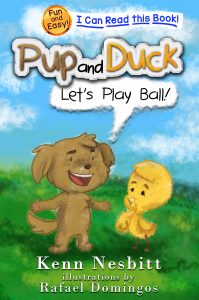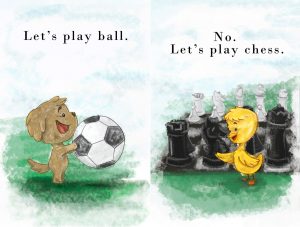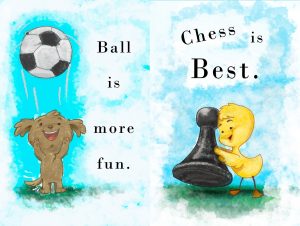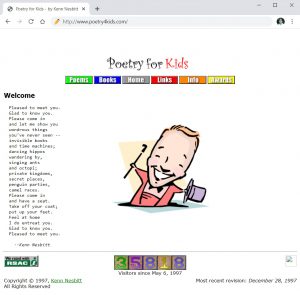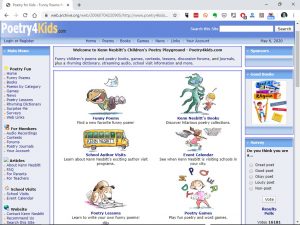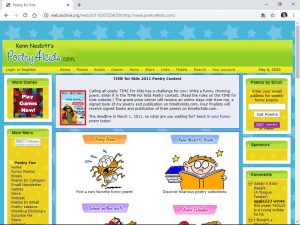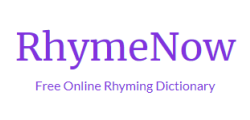
Throughout the school year, I visit many, many schools around the world virtually through Zoom, Meet, Teams, Skype, etc. In other words, I can visit your class or your school online whenever it’s convenient for you, for a fee.
However, if your class or school would like to visit with me, but you don’t have a budget for virtual field trips, I also provide webinars in conjunction with Streamable Learning, the leading provider of interactive livestreams in the K-12 market in the US and Canada. Through quality educational content and an easy-to-use platform, Streamable Learning aims to in introduce interactive livestreams as a valuable supplemental tool for classrooms and families seeking to inspire and educate their K-12 students.
During the 2021-22 school year, I will be doing more than a dozen online webinars, including interactive poetry-writing lessons, holiday poetry sessions, and programs on famous children’s poets from Dr. Seuss to Shel Silverstein. Schools are invited to join any of these sessions for free as my guest.
Streamable Learning and Zoom
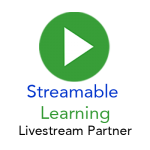 Streamable Learning offers a convenient, cost-effective, and comprehensive calendar of interactive livestreams delivered by subject matter experts and designed to supplement your existing and future lesson plans. To discover hundreds of engaging, educational programs, have a look a their Livestream Calendar.
Streamable Learning offers a convenient, cost-effective, and comprehensive calendar of interactive livestreams delivered by subject matter experts and designed to supplement your existing and future lesson plans. To discover hundreds of engaging, educational programs, have a look a their Livestream Calendar.
I have been offering interactive poetry livestreams through Streamable Learning for several years now, and I hope you’ll be able to join me this year. You can register and participate in as many of these upcoming sessions as you like.
If you would like to attend one of my programs, please see the list of registration links shown below. When you click on the link, you will need to fill out just a few items and once you have finished the form, you will then receive an email with the livestream link. If you do not, please check your spam folder. It is possible that the livestream link will end up there. To join the program, you will need to download the Zoom app. You can download this free app at www.zoom.us/download and click on “Zoom Client for Meetings.” If you have any difficulty, contact efriedman@streamablelearning.com.
2021-22 Livestream Schedule
September 24, 2021
January 19, 2022
February 14, 2022
March 2, 2022
- 11:10am EST – Legends of Poetry: Dr. Seuss
- 12:10am EST – Legends of Poetry: Dr. Seuss
- 1:10pm EST – Legends of Poetry: Dr. Seuss
March 15, 2022
April 4, 2022
If you would prefer to arrange a private interactive videoconference for your class or school only, simply click here to schedule an online author visit. I look forward to seeing your students online!


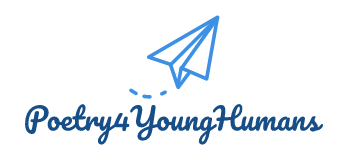
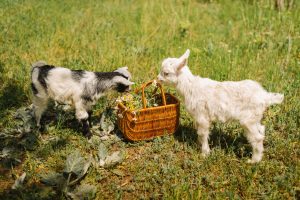
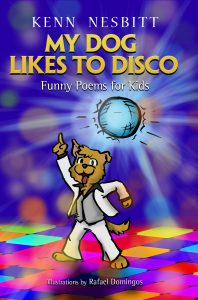
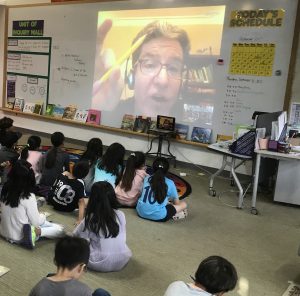 For several years now I have been doing live, interactive webinars in conjunction with
For several years now I have been doing live, interactive webinars in conjunction with 